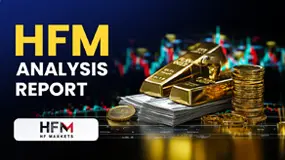Abstract:Discipline is a crucial trait that separates successful traders from the rest. Maintaining discipline in the fast-paced and volatile European financial markets can be challenging but essential for long-term success. Here are some strategies to help traders stay disciplined in their trading endeavors.

Discipline is a crucial trait that separates successful traders from the rest. Maintaining discipline in the fast-paced and volatile European financial markets can be challenging but essential for long-term success. Here are some strategies to help traders stay disciplined in their trading endeavors.
First and foremost, traders should develop a well-defined trading plan and stick to it. A trading plan acts as a blueprint, guiding traders through their trades and ensuring consistency. It should outline specific entry and exit criteria, risk management strategies, and the trader's overall goals. Following the plan diligently helps traders avoid impulsive decisions driven by emotions.
Implementing proper risk management techniques is another vital aspect of discipline. Traders should determine their risk tolerance and set clear guidelines for position sizing and stop-loss orders. By adhering to these parameters, traders protect their capital and prevent emotional decision-making during times of market volatility.
Patience is a virtue that every trader should cultivate. Impatience often leads to overtrading, chasing after quick profits, or making decisions based on incomplete information. By exercising patience, traders can wait for high-probability trading setups and avoid unnecessary risks.
Developing a routine is another effective way to maintain discipline. Traders should establish specific trading hours, allocate time for research and analysis, and avoid distractions during trading sessions. A structured routine helps create a focused mindset and minimizes the potential for impulsive actions.
It is also crucial to reflect on past trades and learn from both successes and failures. Keeping a trading journal allows traders to review their decisions, identify patterns, and continuously improve their strategies. Analyzing past trades helps reinforce discipline by highlighting the importance of following the trading plan and making informed decisions based on analysis rather than emotions.
To further support traders in their quest for discipline, WikiFX offers valuable resources and information. WikiFX provides a platform where traders can access comprehensive broker details, including regulatory information, customer reviews, and ratings. By leveraging the insights provided by WikiFX, traders can enhance their decision-making process and maintain discipline throughout their trading journey.










